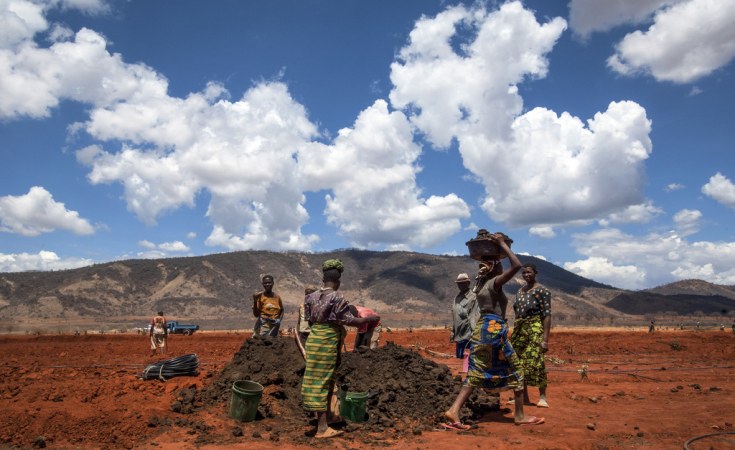The Mediterranean has become a graveyard for Africa's youth. Every day we see images of people risking and often losing their lives in attempts to flee what would appear to be a continent racked by conflict and poverty.
Yet Africa has 11 of the 20 fastest growing economies in the world. It has enormous resources, and almost half of the world's uncultivated land that is suitable for growing food crops.
So why are so many people desperate to leave behind a continent of such opportunity?
Part of the answer is that Africa's vast wealth is often not being translated into development. Often it benefits only a few or is squandered altogether. And illicit outflows of money from Africa totalled U.S. $69 billion in 2014.
To achieve development we need much more than just resources. Certainly, money can address some of the deficits that trap millions - especially rural people - in poverty. It can pay for infrastructure, starting with the roads that will take people to school or market, as well as electricity, water and sanitation systems. It can also finance education and health care and enable people to earn decent wages and to access finance.
But there are things that money can't buy: good governance, leadership, commitment to the rule of law and an enabling environment to attract investment. It also doesn't create social responsibility: the impetus which leads us to pay fair wages, to create decent employment and to pay taxes.
The Third International Conference on Financing for Development (FfD), which convenes in Addis Ababa next week, is one leg of the route that global leaders have charted toward a new international consensus to change the world we live in and to eliminate extreme poverty and hunger.
Later in the year lie the finalization of the Post-2015 Agenda and Sustainable Development Goals (SDGs) in September, and then a new global agreement on climate change in December.
The goals which will be set at these meetings are necessary for our collective future. Without a solid consensus over the financing and resources needed for development, goals remain simply wishes.
But if progress is not only about money, still less is it about aid in the conventional sense. The key to a sustainable future free of poverty and hunger is people. The world leaders gathering in Addis need look no further than the continent where they are meeting to see this.
Africa is rich. Its extractive industries have provided revenues in the hundreds of billions of dollars. Yet Africa's resource-rich countries have some of the world's highest child mortality rates, and a dozen have more than 100 child deaths for every 1,000 live births. This travesty illustrates that there are resources other than money that are necessary for development, starting with leadership, accountability and commitment.
Three quarters of the world's poor and chronically hungry people live in rural areas and depend mainly on agriculture for their livelihoods.
Smallholder farmers and rural entrepreneurs could contribute much more to producing food, jobs, national economic growth and the preservation of natural resources. Yet they often lack the tools to do so. And many of those who are producers of food go hungry themselves.
Investment in rural development is key to delivering a host of development objectives, including adequate food, clean air, fresh water and biodiversity. And growth in the agricultural sector has been estimated to be at least three times more effective in reducing poverty as growth in any other area. In sub-Saharan Africa, the figure is 11 times.
Change must start from within. An institution like mine, the International Fund for Agricultural Development, offers support. We are investing. We are sharing knowledge and best practices. As the only international financial institution in the United Nations system we are committed partners in rural transformation. But the fact remains that no donor institution can transform countries unless they are willing to transform themselves.
Ethiopia, a country once synonymous with famine, is now among Africa's fastest growing economies. Investment in rural infrastructure and agricultural transformation have done what no amount of aid could have achieved. Ethiopia is Africa's number one exporter of honey and has its second-largest horticultural industry.
So let us remember that not all commitments are measured in dollars.
True, to save ourselves, our future and our planet, we need major financial resources, both public and private. But we also need the commitment of responsible governors, legislators, investors, business people and partners of all kinds to see that the investments are just and inclusive.
And this has to happen beyond Africa. Agreements made in Addis Ababa provide a chance not just to count the money, but make sure the money counts.
Kanayo F. Nwanze is President of the United Nations International Fund for Agricultural Development.


